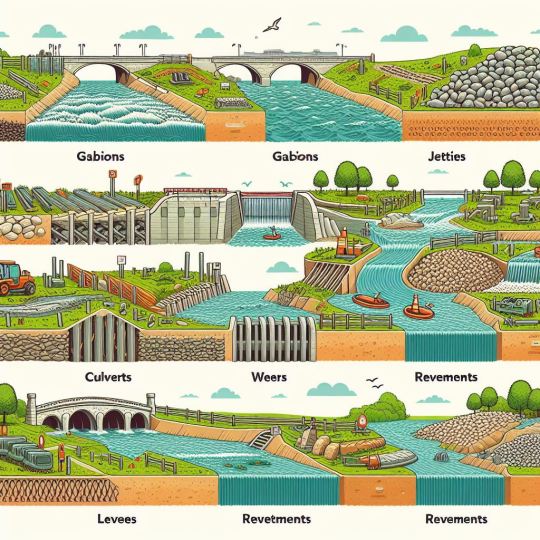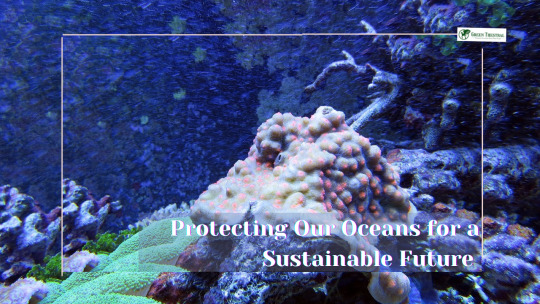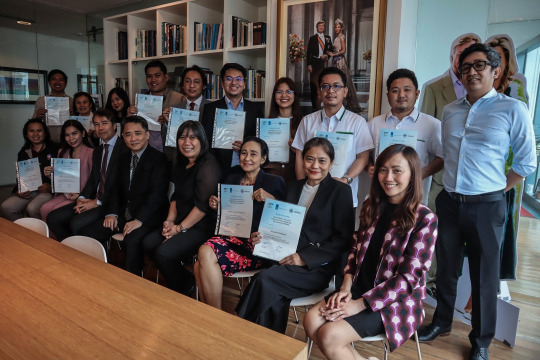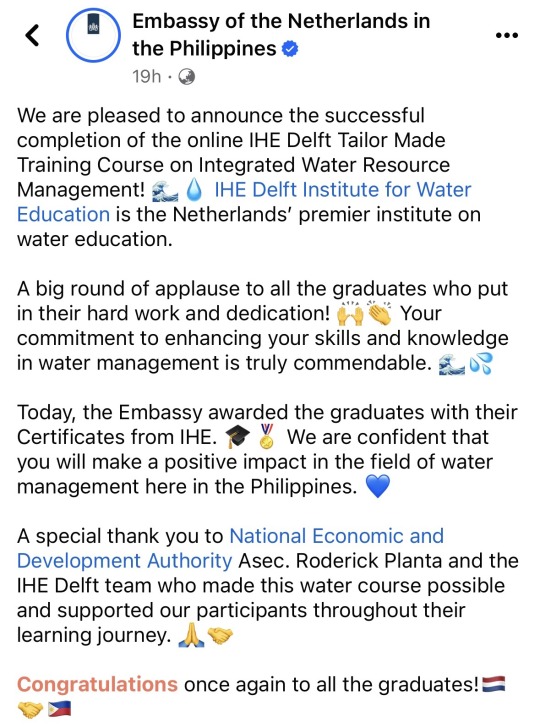#Water resource management
Text
#The Importance of Water#the importance of water purification#what is the importance of water#Water conservation#Water resource management#Global Water Partnership (GWP)#Water Action Hub
3 notes
·
View notes
Text
Lack of Rain and Environmental Factors Contribute to Alarming Situation
Lack of Rain and Environmental Factors Contribute to Alarming Situation
Unexpected decrease in Kharkai River’s water level raises concerns in Jamshedpur, threatening water supply and highlighting urgent need for sustainable water management practices.
JAMSHEDPUR – The Kharkai River, a vital water source for Jamshedpur, is experiencing an unexpected decrease in water levels this year, raising…
#जनजीवन#climate change impacts Jharkhand#deforestation effects Jamshedpur#environmental challenges East Singhbhum#Jamshedpur climate adaptation#jamshedpur water crisis#Kharkai River water level#Life#river ecosystem disruption#sustainable water practices#urban water supply issues#water resource management
0 notes
Text
Exploring the Diverse Techniques of River Erosion Works
Introduction
Rivers, with their ever-flowing currents, have the incredible power to shape the landscape over time. However, this natural force can sometimes pose a threat to human settlements, infrastructure, and agricultural lands. To mitigate the adverse effects of river erosion, various engineering techniques have been developed over the years. In this article, we will delve into the different…

View On WordPress
#bank protection#barrages#bioengineering#channelization#dams#ecological conservation#environmental sustainability#erosion control#groynes#realignment#revetments#riprap#River erosion#river training#sediment control#sediment control structures#spurs#sustainable engineering#vegetative bank protection#water resource management
0 notes
Text

Join Jeremiah Brosowske as he discusses the role of community engagement in CRIT’s water resource planning. Learn how active participation from tribal members leads to innovative and sustainable water management practices that meet the needs of the entire community.
4 notes
·
View notes
Text
even does know what plants are though. (as per doctor who canon, the way ships manage to keep oxygen on long voyages is via having literal forests in them. now, nothing to that extent, obviously, they weren’t that well-equipped or funded. but there’s definitely plants In There, probably relegated to a much more ordered existence, think the difference between a natural forest and one grown for logging.) at least they have that. they have seen plants. not often, but they have.
i don’t think they really understand plants beyond their functions (to eat, keep everyone breathing, etc.) whereas with natural beauties and animals and other such things that even has no experience with and can wonder over, they can’t really. do that with plants. the ability to admire a flower rather than immediately think of it in terms of resources lost and gained in its creation is a skill they have to learn.
but you know. at least they have seen them. that’s something. that’s slightly less depressing, right.
#even also would not know how to take care of plants. at most they know that plants require water. maybe.#their job was reconstituting the ship’s waste and recovering as much as they could and safely disposing of the rest#even doesn’t know to water plants. thank god the doctor doesn’t keep houseplants. they would die.#but i just think this would be an interesting contrast.#how easily even is taken in by things they’ve never seen before. and the few things they consider mundane. they have trouble looking at#with any emotion but Critically Thinking About How This Contributes To Us#the ever-present conflict of everything they learned to function as a part of a ship that was. not prepared. and responded to its lack of#preparedness by dehumanizing everyone on it and exploiting them until their death all for a future they couldn’t even be sure was there.#and the fact that they are delighted by the universe. they want to love it. they want to see it as beautiful. they want to escape.#and. what that means is that even thinks of flowers as wastes of space. long after they’ve gotten over a lot of their other ins#instincts about resource management and wasting it and such. they never really like flowers.#and that makes it kind of funny right? that it’s rose they have a crush on.#to them: rose is essential. so important to the doctor and so important - in their eyes - to the whole universe because of it.#idk where im going with this but its certainly a thing now#dw oc
3 notes
·
View notes
Text
"and then he drank the water from the river / sink in the abandoned house / rain water ..."
listen, i know it's just fanfics. but I keep reading this in fan works and worry that some might actually think it's safe to drink water from questionable sources.
Should you ever be in an outdoor situation where you don't have your usual water access - don't drink water from whatever-seems-fine-source. It can make you really sick. Please rely on locally approved sources of water or filter / test yourself before slurping down liquid cholera.
#there are good reasons why humanity uses large amounts of resources on water access and waste management#rain water is not naturally safe to consume#eroded pipes or inactive water filtering systems can lead to poisoning#running waters tend to be safer but they too can have dangerous bacteria or chemical pollution in it#just be careful okay#grimmwriting#water safety#drinking water#public health
8 notes
·
View notes
Text
Unveiling the Secrets of Life Below Water: Goal 14 for a Sustainable Future

In our journey towards achieving a sustainable future, Goal 14 of the United Nations' Sustainable Development Goals (SDGs) plays a pivotal role. Life Below Water, as it is commonly referred to, focuses on the preservation and sustainable use of oceans, seas, and marine resources. With this goal, the international community aims to safeguard marine ecosystems, mitigate the impacts of human activities, and promote sustainable livelihoods for coastal communities. This article delves into the significance of Goal 14, explores the challenges faced, and highlights the initiatives that can help us ensure a healthier and more vibrant life below water.
Understanding the Importance of Goal 14
The Earth's oceans are vast and cover more than 70% of the planet's surface. They are teeming with life and harbor a remarkable diversity of species and ecosystems. From the mesmerizing coral reefs to the mysterious depths of the abyss, the oceans are a treasure trove of biodiversity, supporting millions of species, including plants, animals, and microorganisms.
Beyond their ecological significance, the oceans play a crucial role in regulating the Earth's climate. They act as a massive heat sink, absorbing a significant amount of the sun's energy and distributing it across the planet. Additionally, oceans play a vital role in the water cycle, facilitating the evaporation of water, which then falls as precipitation and sustains terrestrial ecosystems.
The oceans are not only important for the environment but also for human societies. They provide sustenance to millions of people around the world. Fishing, both for subsistence and commercial purposes, is a primary source of livelihood for coastal communities. The oceans also support economic activities such as tourism, shipping, and offshore industries, contributing significantly to global economies.
However, the delicate balance of marine ecosystems is under threat due to various human activities. Overfishing, driven by unsustainable practices and the demand for seafood, has led to the depletion of fish stocks worldwide. Large-scale industrial fishing, with destructive methods such as bottom trawling, threatens not only the targeted species but also the entire marine food web.
Marine pollution is another significant challenge faced by the oceans. Pollution from land-based sources, including plastic waste, chemicals, oil spills, and agricultural runoff, finds its way into the marine environment, causing severe harm to marine life and ecosystems. The accumulation of plastic debris in the oceans has reached alarming levels, forming giant garbage patches and causing entanglement and ingestion by marine organisms.
Habitat destruction and degradation are also taking a toll on marine ecosystems. Destructive practices such as coral reef destruction, coastal development, and the destruction of mangroves and seagrass beds result in the loss of critical habitats and the disruption of delicate ecological relationships. These habitats serve as nurseries and breeding grounds for many species, and their loss has far-reaching consequences for marine biodiversity.
Furthermore, climate change poses one of the most significant threats to life below water. Rising sea temperatures, ocean acidification, and sea-level rise are already impacting marine ecosystems. Corals, which are vital for the survival of countless marine species, are particularly vulnerable to rising temperatures and increased ocean acidity, leading to coral bleaching events and the degradation of coral reefs.
In recognition of the urgent need to protect and sustainably manage marine resources, Goal 14 of the United Nations' Sustainable Development Goals (SDGs) was established. Also known as Life Below Water, this goal aims to ensure the conservation and sustainable use of the oceans, seas, and marine resources for present and future generations.
Goal 14 encompasses various targets and indicators to guide efforts towards sustainable ocean management. One of the key focuses is the protection and restoration of coral reefs, which are among the most diverse and valuable ecosystems on Earth. Coral reefs provide habitat for numerous species, protect coastlines from erosion, and support vibrant tourism industries. By implementing measures to reduce coral bleaching, enhance reef resilience, and combat destructive practices, Goal 14 seeks to safeguard these vital ecosystems.
Another critical aspect of Goal 14 is the reduction of marine pollution. It calls for the prevention and significant reduction of marine debris, particularly plastic waste. Efforts are being made to promote better waste management systems, recycling and reusing plastics, and raising awareness about the detrimental effects of single-use plastics. Innovative technologies for ocean cleanup are also being developed to tackle existing pollution.
To address the issue of overfishing, Goal 14 emphasizes the need to restore fish stocks to sustainable levels. This involves implementing science-based management plans, combating illegal, unreported, and unregulated fishing, and promoting responsible fishing practices. Creating marine protected areas and adopting ecosystem-based management approaches can help protect critical habitats and ensure the long-term viability of fisheries.
Furthermore, Goal 14 acknowledges the urgent need to address ocean acidification, which poses a grave risk to marine organisms. By reducing carbon dioxide emissions and taking steps to enhance the resilience of marine ecosystems, such as protecting mangroves and seagrass beds, this goal aims to mitigate the impacts of ocean acidification and ensure the survival of vulnerable species.
Achieving Goal 14 requires a collaborative effort from governments, businesses, civil society organizations, and individuals worldwide. International cooperation is crucial to strengthen governance frameworks, regulate resource exploitation, combat illegal fishing, and promote sustainable practices. By taking collective action and embracing sustainable approaches, we can secure a healthier and more vibrant future for life below water.
Challenges and Threats to Life Below Water
The life below water faces a multitude of challenges that require immediate attention and concerted efforts. Overfishing, driven by unsustainable practices and illegal, unreported, and unregulated fishing, has led to a decline in fish stocks worldwide. The loss of biodiversity affects not only marine ecosystems but also the communities that depend on them for food security and economic opportunities.
Marine pollution poses another significant threat. Plastic waste, chemicals, oil spills, and other pollutants contaminate the oceans, harming marine life and ecosystems. The accumulation of plastic debris, in particular, has gained global attention due to its devastating impact on marine organisms and the potential consequences for human health through the food chain.
Ocean acidification, caused by the absorption of excess carbon dioxide from the atmosphere, poses a grave risk to marine organisms such as corals, shellfish, and plankton. Acidic waters can hinder the growth and survival of these organisms, disrupting the entire marine food web and impacting the livelihoods of coastal communities.
Initiatives and Solutions for a Sustainable Life Below Water
Achieving Goal 14 requires a comprehensive approach involving governments, businesses, civil society, and individuals. Several initiatives and solutions have emerged to address the challenges faced by life below water:
Sustainable Fisheries Management: Implementing science-based management plans, promoting responsible fishing practices, and combating illegal fishing are crucial steps towards replenishing fish stocks and ensuring the long-term sustainability of fisheries. Tools like marine protected areas and ecosystem-based management help preserve critical habitats and protect biodiversity.
Marine Pollution Prevention: Reducing plastic pollution and other sources of marine debris is vital. This can be achieved through improved waste management systems, recycling and reusing plastics, and raising awareness about the consequences of single-use plastics. Additionally, promoting the use of biodegradable alternatives and supporting innovative technologies for ocean cleanup can help mitigate the impact of existing pollution.
Climate Change Mitigation and Adaptation: Addressing climate change is fundamental to preserving life below water. Transitioning to renewable energy sources, reducing greenhouse gas emissions, and promoting sustainable coastal development are essential steps in mitigating the impacts of climate change on marine ecosystems. Additionally, enhancing the resilience of coastal communities through measures such as mangrove restoration, coastal protection, and sustainable tourism can aid adaptation efforts.
International Cooperation and Governance: Collaboration among nations is crucial for the effective implementation of Goal 14. Strengthening international frameworks, such as the United Nations Convention on the Law of the Sea (UNCLOS), and promoting regional cooperation can help combat illegal fishing, regulate resource exploitation, and ensure the sustainable use of marine resources.
Conclusion
Preserving life below water is not only crucial for the health of our oceans but also for the overall well-being of our planet. Goal 14 provides a roadmap for sustainable ocean management, aiming to conserve marine biodiversity, mitigate pollution, and promote the sustainable use of marine resources. By taking action at individual, local, and global levels, we can make a significant difference in ensuring a healthier and more vibrant future for life below water. Let us join hands and work together to safeguard the oceans for generations to come.
#Sustainable management of marine resources#Conserving marine biodiversity#Protecting coral reefs and marine ecosystems#Sustainable fishing practices for life below water#Reducing marine pollution for a healthier ocean#Restoring fish stocks for sustainable fisheries#Addressing the threats of overfishing#Combating illegal fishing activities#Preserving the delicate balance of marine ecosystems#Tackling plastic pollution in the oceans#Solutions for ocean acidification#Climate change impact on life below water#Sustainable tourism and the oceans#Promoting responsible coastal development#Achieving United Nations' Goal 14 for a sustainable future#Enhancing resilience of coastal communities#Sustainable livelihoods for coastal populations#Importance of ocean conservation and sustainability#Preserving marine habitats and species diversity#Ecosystem-based management for marine resources#Strengthening international cooperation for Goal 14#Achieving sustainable development through Goal 14#Role of marine protected areas in conservation#Long-term viability of marine ecosystems#Promoting sustainable shipping practices#Economic benefits of sustainable ocean management#Balancing human activities with marine conservation#The significance of Goal 14 in the SDGs#Ensuring a vibrant future for life below water#Global initiatives for the protection of marine environments
2 notes
·
View notes
Text
From C3EP49 about the skyship, but I think it'll help make sense of Laerryn's work since most of it was a little vague.
You also learn more about brumestone with those high rolls, too. → Brumestone is naturally buoyant within. When it is excavated or pulled from the ground of Exandria, it just lifts and stays where it is. It's easily pushed, and seems to float on its own, and it's through charges of arcane energy that its buoyancy is adjusted, and that's how the ship works. Each of these controls controls these very, very faint runes that are marked along the deck of the ship, either underneath or on top of it, and you can see where they all connect to the different brumestone devices, and so with each different point of control, it raises the amount of power that's going to them. It doesn't take a lot.
Obviously, she doesn't just work with keeping the city afloat but distributing all that arcane energy across the city for the different systems of the Court of Working --- so we'd have a head of sanitation and water management, the different transportation methods, communication crystals, automatons, etc --- and vouching for infrastructure projects in regards to arcane requirements.
Also, evidently, runes specialist. If a major arcane device isn't working as it probably should, she's the one to inspect its runic pattern and patch it.
Not to mention denfences and others.
#this is so redundant to say but she's so significant to that city#(also whoever keeps the water coming and going. and food supply)#she. almost solely. manages the city's most precious resource#especially considering it's not just a regular city. it's a mageocracy#(talk about power couple. my dudes)#laerynn coramar seelie#avalir#cr stuff
3 notes
·
View notes
Text



© Embassy of the Kingdom of the Netherlands in the Philippines
IHE Delft Certified
This was from the graduation/certificate awarding of the Tailor Made Training on Integrated Water Resources Management (IWRM) at the IHE Delft Institute for Water Education's e-Campus from 28 February 2023 - 30 March 2023.
I don’t usually rave about short course trainings, let alone an online course... But training with the IHE Delft Institute for Water Education (the largest international graduate water education in the world) is a low-key dream come true for me. I really never believed that I was going to experience this… Thank you Taxpayers and the government of the Netherlands for this. Hopefully, we get to this face-to-face in the Netherlands someday. Haha.
#Training#Integrated Water Resources Management#IWRM#Government#IHE Delft Institute for Water Education#Kingdom of the Netherlands#Water#Dutch#Embassy#Makati City#Philippines
1 note
·
View note
Text
Wet Weather Flow Offsetting Programs
Wet weather flow (WWF) refers to the increased flow in a sewer system during and after a rain event.
Learn more at - https://civi.ca/assessing-and-creating-wastewater-system-capacity/
#Wet Weather Flow#flow monitoring#wastewater resource management#wastewater management#waste water flow monitoring#sewer capacity analysis#municipal wastewater system#stormwater management#sewer inspection#sewer flooding
0 notes
Text
Jharkhand Aims to Boost Irrigation Coverage
CM Champai Soren Pushes for Modern Irrigation Technologies
The Jharkhand government is intensifying efforts to expand irrigation facilities, with a focus on innovative solutions to reach every farm in the state.
RANCHI – Chief Minister Champai Soren conducted a high-level review meeting of the Water Resources Department, emphasizing the need to accelerate irrigation projects across…

View On WordPress
#agricultural development#राज्य#Champai Soren#Farmer Welfare#Government Initiatives#Jharkhand irrigation projects#rural infrastructure#solar-powered irrigation#state#sustainable farming#underground pipeline irrigation#water resource management
0 notes
Text
ICIMOD Vacancy 2024 for Various Positions in Nepal
ICIMOD Vacancy 2024 for Various Positions in Nepal: Communications Officer, Water Resources Management Specialist, Air Pollution Mitigation Specialist, Energy and Emission Specialist, Publication Coordination Officer (Editor). International Centre for Integrated Mountain Development (ICIMOD) invites applications from interested and eligible candidates to apply by 18th August 2024.
CAREER…
#Air Pollution Mitigation Specialist#Career in NGO/INGO#Communications Officer#Energy and Emission Specialist#ICIMOD Vacancy 2024#international organization#Publication Coordination Officer (Editor)#Water Resources Management Specialist
0 notes
Text
the struggles of today proved to me that i might indeed be a little mentally unwell
#not enough to go to therapy but at least now i know what i should work on#correct me if i'm wrong but most people probably don't start to feel suicidal if there's like. a problem at work#i've been asked to support the back office and help with managing cases which is okay i guess. but i'm not a support team person so#i don't know how to do a lot of things despite using the learning resources provided by the workplace#and this one case i'm handling was rather easy on the surface. no info in sys so parcel can't move forward. ask origin to release data. eas#but then origin says that they can't because they get an error message when putting in receiver's acc number. ruh roh#if origin can't release data no one can. i've asked them to handle it with IT but had no response. in the meantime the other involved CS#started getting involved and now a production in a factory is stopped. and i know it's not my fault but i could've done better#acted faster. thought smarter. and i hate this kind of responsibility. and that i care too much#i've cried so much today i'm so tired. from the stress of this task i've been given and because of the IT issues popping in all the time no#i logged into work 45 minutes late because the VPN i've been using shit itself and i had to get a backup one#i should've gotten it installed ages ago but nooo let's do that laterrrrr you definitely won't regret that#i hate having to put up with this bitch (me) .#another thing is. it's currently summer vacation season so i'll have to brace myself for more support work to come. it's probably gonna go#just as bad if not worse. i'm so not cut out for this. i'll have to ask my boss if he can move me to a different service#so i can have an excuse like sorry i can't help i'm no longer associated with tnt~#but that's gonna have to wait until he;s back from his vacation in august . oh well#also all this stress might result in me getting something akin to an ED#my stress response other than crying and shaking is not feeling hunger. i ate something substantial at 5pm and had breakfast at 6am#between that i had two small pieces of candy and water#i'm already bad at feeding myself or at the very least eating nutritious food . this could make me worse#“oh but kav everyone makes mistakes and it's important to learn from them! keep fighting!” bitch i don't want to i didn't sign up for this#if i wanted to work for Support Team i'd have applied there. i did not wish to get involved with them and their work#sorry i needed to get this out of my system. i'll probably complain to some irls too but i might be able to do that without crying now#laments#<- i think this is going to be my vent tag
0 notes
Text
youtube
#youtube#news#Columbia River Treaty#Transboundary Cooperation#Treaty Negotiations#US State Department#Historic Announcement#Shared Resources#Blinken#Columbia River Basin#Columbia River Gorge#Indigenous Rights#Environmental Conservation#International Relations#Diplomacy#Pacific Northwest#Columbia River#US-Canada Relations#Canada Foreign Ministry#Water Management#Joly#Hydroelectric Power
0 notes
Text
Bisleri and TERI Launch a Study on ‘Water Credits’

Bisleri International, in collaboration with TERI School of Advanced Studies, has embarked on a groundbreaking initiative titled “Water Credits: Impact-Adjusted Virtual Water Footprint”.
The study aims to establish a framework for water credits, akin to carbon credits, to promote sustainable water management. Unlike carbon emissions, water savings require a localized approach, factoring in variables such as rainfall and consumption at a watershed level… READ MORE
0 notes
Text
sunday cosplay
have to deal with not getting this one. no worries. there's many other like it . not exactly but… i will get the same feel.
there's not getting it.
and there's really not getting it.
i don't know how people don't get it. what is the science behidn people not getting it? i don't get it.
go go go
0 notes